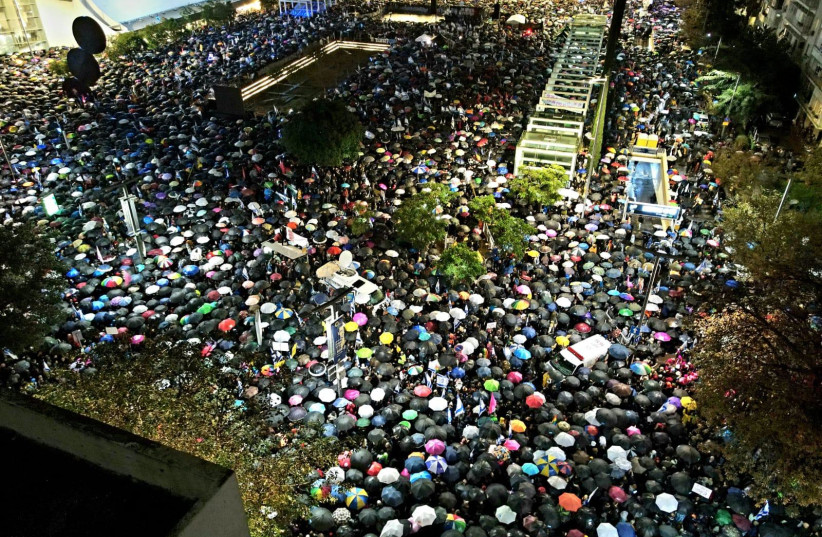The upcoming week is an important one in the battle over the government’s proposed reforms of Israel’s judicial system.
On Sunday morning, the Knesset Constitution, Law and Justice Committee resumes its debate over the first two provisions of the reform – changing the makeup of the Judicial Appointments Committee – so that the coalition will control the appointment of judges, and blocking the High Court of Justice from hearing appeals against the legality of Basic Laws.
According to the committee’s schedule for this week, which was announced on Thursday, Sunday does not include any voting while Monday may include voting. The vote would approve the bill for its first reading in the Knesset plenum. This must happen at least 48 hours after the committee vote, which means that the plenum will vote on the bill’s first reading no earlier than Wednesday.
The opposition will do everything it can to delay both the committee and the plenum votes. It will likely hand in thousands of reservations in order to drag on the debates, as well as attempt a filibuster in the plenum. However, the coalition on Sunday could attempt to use a special clause in the Knesset protocol that enables “special debating procedures” and limit the opposition’s speaking time.
Also on Sunday, the Cabinet Legislation Committee will convene for the first time since the government’s establishment in late December. Its agenda includes approval of a law that includes additional aspects of the judicial reform, such as that the High Court only has the power to strike down regular laws if the decision is made by consensus of all of its 15 judges, and only if it “directly contradicts” a Basic Law; and the controversial “Deri Law,” which blocks the High Court from intervening in ministerial appointments.

The High Court last month ordered Netanyahu to fire Shas chairman MK Arye Deri from his positions as health and interior minister on the grounds that the appointment was “extremely unreasonable” both because of Deri’s criminal history, including a conviction for tax offenses in January 2022, and because Deri at the time misled the courts by promising that he would abandon politics in order to receive a lenient plea bargain.
The “Deri Law” is an amendment to a Basic Law. The coalition hopes that once it passes the law that blocks the High Court from hearing appeals against Basic Laws, it will be able to push through the Deri Law unchallenged. Opposition members argued that this distorts the legislative process in order to bring Deri back as a minister.
Mass strike on Monday
All of the above is what led a coalition of protest groups to announce a mass protest strike on Monday outside the Knesset. The protests will likely include tens of thousands of people. While Israel’s umbrella labor union, the Histadrut, said it would not give its workers the day off, many other organizations and employers said that they would join the protests.
The protest will likely be tense, as it comes on the backdrop of National Security Minister Itamar Ben-Gvir’s public criticism of the Israel Police on Thursday for not using a harsher hand against anti-government protesters. Police conduct will thus be under the spotlight.
Finally, this week will likely include fiery rhetoric against the High Court on another matter – its agreement to hear an appeal by the Movement of Quality Government in Israel from last week to force Attorney-General Gali Baharav-Miara to announce that Netanyahu is “incapacitated” and to temporarily remove him from his office. The movement argued that the prime minister was violating a conflict of interest agreement that stipulated that he was not allowed to involve himself in any aspects of the judicial system that may impact his ongoing trial.
The court on Friday ordered the government to respond to the appeal within a month. Knesset members and ministers, including Finance Minister Bezalel Smotrich, criticized the court on Friday for even agreeing to hear the case since the attorney-general did not have the power to announce a prime minister “incapacitated.”
